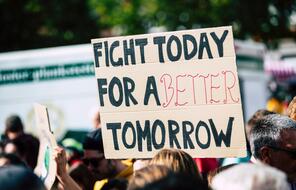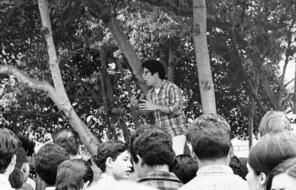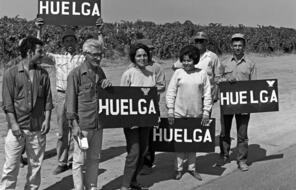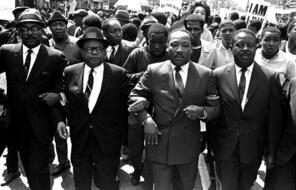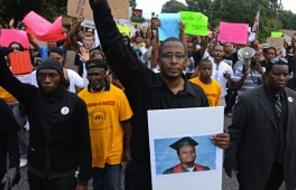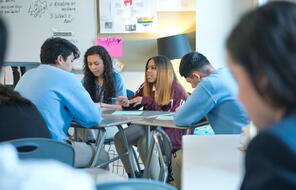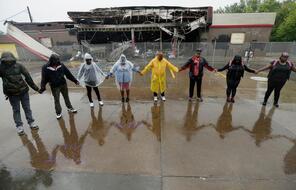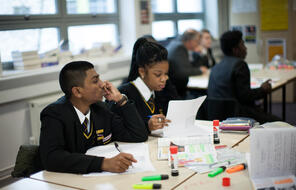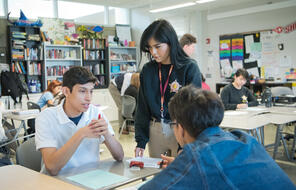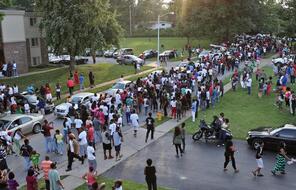Computer Keyboard
At a Glance
Subject
- Social Studies
- Democracy & Civic Engagement
What does it mean to find yourself? Sometimes we find our passions, our voices, in the objects around us. Gerard K., an immigrant from the Democratic Republic of Congo, explains:
When I was young, I loved to open up my father's equipment, like his remote, phone, and camera, to see what was inside. I wanted to know what made them work. I could see my father's face. He was so frustrated, shaking his head no. He would pull my ears and yell at me, "Don't open my equipment anymore!"
"But Dad, I just want to learn, to know how it works," I would say, touching my ear and crying.
"Don't open it if you don't know how to fix it back," said my dad, and he took his hand off my ear. My ear felt so hot that I went in the kitchen, opened the refrigerator, took cold water, and put my eat inside the bowl. I think my father was asking himself, "Why doesn't my son listen, he thinks he will learn how to be an engineer by destroying my equipment?" I don't blame him. The problem was, he didn't understand technology.
It was very easy for me to find gadgets in the Democratic Republic of Congo. People threw their electronics and cables that didn't work anymore in a big trash hole behind their houses. I could hear the noise of the rats eating cables, and who knows, maybe they spoke in their language, wondering, "What do we have for dinner today?" One day, I found a small red light in a toy car. An idea popped into my mind to create a small antenna, using a candle and a toothpick. The project took two days.
"How come you can do more things than other kids of your age?" my mother would say.
"I don't know, maybe it's just because I love to do it," I said, looking at my antenna.
One afternoon, I was so tired of staying in the house all day without doing anything. I decided to go see my friends and I proposed to them that they walk with me. There was a small street on the left side of our avenue. There were a lot of dirty plastic bags, sandals, and shoes everywhere. It smelled like rotten food and nobody liked to pass through. Rumors were that people were killed there. We were passing nearby and something caught my attention. I didn't know what it was. I stopped walking, and looked at the object again, curious to know. My friends stopped, too. They asked me, "C'est quoi le probleme?"
"Everything is okay, just wait for me," I replied.
As I walked down that dangerous street, getting closer and closer, my heart beat very fast. I wondered what I was doing. I walked until I reached the place. I touched the black thing and saw that it was a strong plastic, dirty keyboard with no screen. "Yes!" I said, jumping around like Kirkou. My two friends were impressed to see me dancing around because of a keyboard. "I am going home right now," I said, laughing. My friends must have been thinking, "This dude will never change."
When I got home, I cleaned my keyboard with a t-shirt till all the dust came off. My brother came in the bedroom and saw me pressing the keyboard without any screen or mouse. "Tu es fou," he said, shaking his head. Even though they thought I was crazy, their reaction didn't change my passion.
Today I can open a microwave, a computer, and even a TV. I have become like an advisor. My dad takes me to Best Buy so I can show him what to buy. I tell him to get old computers, so even if they break, we can always replace them with new parts. I can do this for him because I have never stopped learning. That is one thing that I love about myself. 1
- 1Gerard Kasemba, "Computer Keyboard," in I Want You to Have This: A Collection of Objects and Their Stories from Around the World, written by eleventh graders from Boston International High School (Boston, MA: 826 Boston, 2013), 44. Reproduced by permission of 826 Boston.
Supporting Materials
How to Cite This Reading
Facing History & Ourselves, “Computer Keyboard,” last updated June 17, 2017, https://www.facinghistory.org/resource-library/my-part-story/computer-keyboard.
This reading contains text not authored by Facing History & Ourselves. See footnotes for source information.

